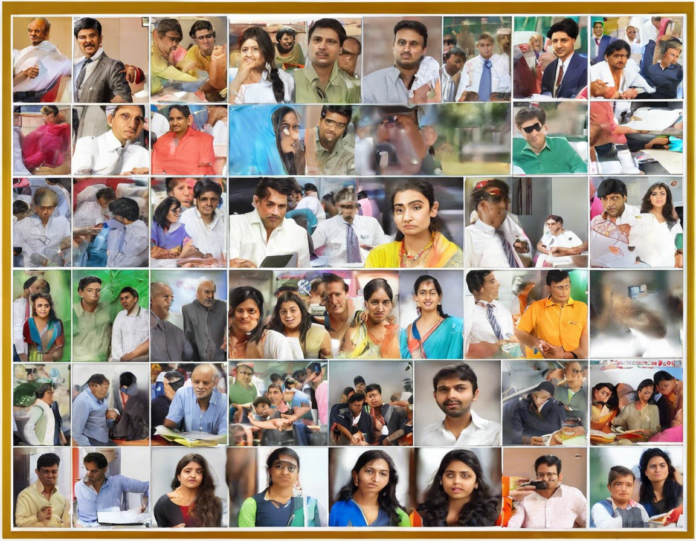The Staff Selection Commission (SSC) is one of the most prestigious and sought-after organizations in India responsible for recruiting staff for various posts in the ministries and departments of the Government of India. Established in 1975, the SSC conducts exams and interviews to select candidates for various positions such as Group B and Group C posts in government ministries, departments, and organizations.
SSC Exams:
The SSC conducts various exams throughout the year, the most popular ones being:
1. SSC Combined Graduate Level (CGL) Exam
2. SSC Combined Higher Secondary Level (CHSL) Exam
3. SSC Junior Engineer (JE) Exam
4. SSC Constable (GD) Exam
5. SSC Multitasking Staff (MTS) Exam
Eligibility Criteria:
The eligibility criteria for SSC exams vary depending on the post being applied for. However, in general, candidates must have a Bachelor’s degree from a recognized university to be eligible for most SSC exams. The age limit varies for different posts and categories, with relaxation in upper age limit for reserved categories.
SSC Selection Process:
The selection process for SSC exams typically consists of two or three stages, including a preliminary exam, main exam, and in some cases, a personal interview. Candidates are required to clear each stage to progress to the next.
Why Choose SSC?
Joining the SSC offers numerous benefits, including:
– Job Security: Positions in government departments provide long-term job security.
– Good Salary and Perks: Government jobs offer competitive salaries and additional perks.
– Work-Life Balance: Government jobs are known for providing a good work-life balance.
– Prestige: Working in government departments is considered prestigious in Indian society.
SSC Preparation:
Preparing for SSC exams requires dedication and hard work. Some tips for effective preparation include:
– Understand the Exam Pattern: Familiarize yourself with the exam pattern and syllabus.
– Create a Study Schedule: Plan your study schedule to cover all topics systematically.
– Practice Previous Year Papers: Practice solving previous year papers to understand the exam format.
– Take Mock Tests: Regularly take mock tests to assess your preparation level.
– Stay Updated: Keep yourself updated with current affairs and general knowledge.
Frequently Asked Questions (FAQs):
Q1: Are SSC exams conducted every year?
A: Yes, SSC exams are conducted annually for various posts.
Q2: Can candidates apply for multiple SSC exams simultaneously?
A: Yes, candidates can apply for multiple SSC exams as long as they meet the eligibility criteria.
Q3: Is there negative marking in SSC exams?
A: Yes, there is a negative marking scheme in most SSC exams where marks are deducted for incorrect answers.
Q4: How can I download my SSC exam admit card?
A: Admit cards for SSC exams can be downloaded from the official SSC website using your registration details.
Q5: What is the age limit for appearing in SSC exams?
A: The age limit varies for different posts and categories, with relaxation for reserved categories as per government norms.
Q6: Can candidates from any state apply for SSC exams?
A: Yes, SSC exams are conducted at the national level, and candidates from any state can apply.
Q7: Is there an interview stage in all SSC exams?
A: No, not all SSC exams have an interview stage. It depends on the specific exam pattern.
Q8: How can I prepare for the SSC General Awareness section?
A: To prepare for the General Awareness section, read newspapers, magazines, and books on current affairs regularly.
Q9: Are calculator devices allowed in SSC exams?
A: No, calculator devices are not allowed in SSC exams. Candidates have to perform calculations manually.
Q10: What is the validity of the SSC exam scorecard?
A: The validity of the SSC exam scorecard varies depending on the exam. Usually, it is valid for one year.
